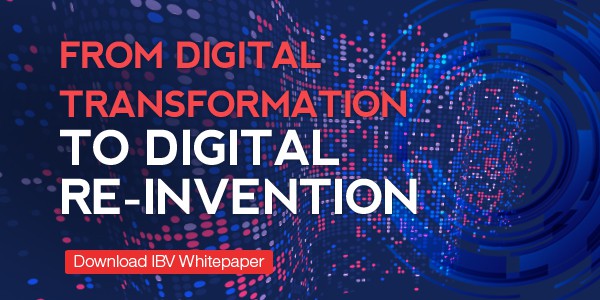The way things are moving in the digital space, companies will soon have to start thinking about what business are they really in. The trend is global and many companies have already started re-imagining their business. We’re not talking about minor tweaks and modifications to the existing business model, but complete overhauls.
Sounds illogical? It won’t, once you have gone through the three examples below. You can then read on to understand the key learnings from this, and if you’re more curious to have a deeper understanding of how digital re-invention is happening and what CEOs across the globe are thinking, then you can read IBM’s detailed white-paper, which we’ve extracted this from. You can download it from here.
Three Global Examples of Re-Invention
US based Ford Motor company is re-inventing itself from being a car manufacturer into a mobility services provider. They’re building expertise around vehicle connectivity, mobility, autonomous vehicles and big data and forming a global eco-system of startups and developers to build innovative solutions.
UnderArmour, a sports goods manufacturer is re-inventing itself to becoming a provider of digitally enabled health and fitness provider. They’re working on building new capabilities for supporting connected fitness, apparels, activities and health. They’ll use the mobile to enhance their reach and use this combination to serve their customers as personal consultant, trainer, coach, and confidant.
Similarly, Japan Post Services Company is re-inventing itself into becoming an integrated lifestyle support partner. They’re using technologies to digitally engage with Japan’s elderly customer base of more than 33 million people, which is expected to reach 45 million by 2020. They’re partnering with technology companies to create analytical capabilities to provision for lifestyle solutions that address customer needs and aspirations.
The Key Learnings
There are a few key things to learn from what’s happening globally.
First, technology is essential for re-invention. You can no longer think of it as something to improve business efficiency, but rather consider it to be a part and parcel of your business. Companies are relying heavily on technology to either overhaul their offerings like Fort, or re-invent the business they’re in, like UnderArmour.
Second, superior experience has become a must to woo customers, for which once again, companies require digital technologies like Big Data and Analytics. You need those to have a thorough understanding of your customers, understand what they like or don’t like, and then take a call on how to re-invent your business to offer them a superior experience. Japan Post Service is using sophisticated mobile and analytics capabilities do just that.
The third thing to remember is that you need business agility. All that data you get about your customers will be useless unless you can act on it quickly to draw insights to take important business decisions.
Lastly, you can’t do it all alone, but will need to build an eco-system of vendors and partners. It’s not just technology vendors we’re talking about, but others who can support you on your journey. Monsanto, the agrochemical company for instance, acquired Climate Corporation and leveraged Big Data and analytics to provide real-time temperature and soil moisture information to farmers via a mobile app. When the farmer enters what seed has been planted, it tells them when to harvest and what yield to expect. This is another example of re-invention where a company that provides agro chemicals offers farming advice to farmers.
In Conclusion
Digital re-invention is just the beginning. You can expect the effect to rub-off on other companies very soon as they see their peers succeeding. Those who re-invent will lead in the digital economy, while others will struggle.
It’s high time that you started thinking about what business you’re really in?













